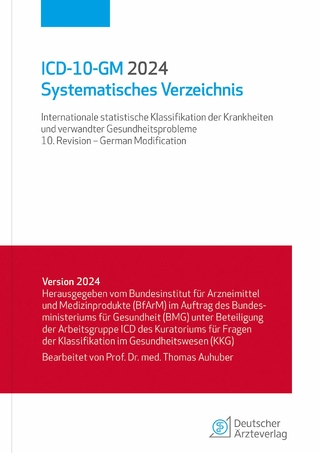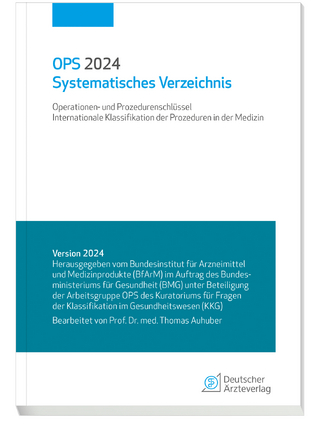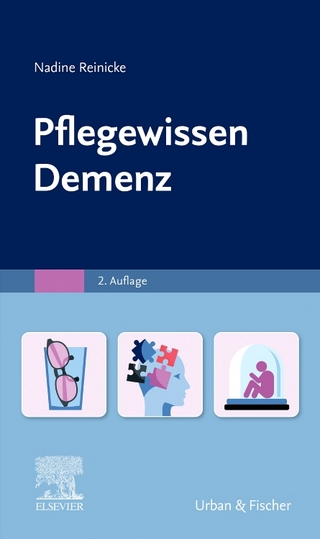
Digital Health Maturity, Innovation, and Quality Improvement
Academic Press Inc (Verlag)
978-0-323-95260-6 (ISBN)
- Noch nicht erschienen (ca. September 2025)
- Versandkostenfrei innerhalb Deutschlands
- Auch auf Rechnung
- Verfügbarkeit in der Filiale vor Ort prüfen
- Artikel merken
Emeritus Professor Liaw MD, PhD is a clinician scientist and informatician who uses mixed methodologies to research digital health, focusing on electronic decision support, mHealth, data quality & interoperability and ethical, legal & social issues. He has sustained international collaborations on his digital health program in Asia-Pacific, Europe, and America. He is a Fellow, American College of Medical Informatics (2012) and Founding Fellow, Australasian College of Health Informatics (2002) and International Academy of Health Sciences Informatics (2017). He is the current Chair of the IMIA Primary Care Informatics WG. As Head, WHO Collaborating Centre on eHealth (AUS-135), he assists WHO member states, especially low- & middle-income countries (LMIC), with digital health maturity model (DHMM) based approaches to implement and sustain national digital health programs to achieve universal health coverage, safe and cost-effective integrated person-centred health services and community development. He has attracted more than $18M in competitive grants and published extensively in health informatics & digital health. I am an early career researcher (Research Fellow) with the School of Population Health under the Faculty of Medicine at University of New South Wales (UNSW), Sydney, Australia. My research interests are in the secondary usage of routinely collected electronic health records (EHRs) data. My focus is on linking and harmonising primary care data with hospital admissions data, social media, and wearable devices data to undertake large scale observational research. As part of my PhD, I investigated the methods to assess absolute risk assessment for coronary artery disease in Type 2 Diabetes patients using EHRs. I am also the main organiser and editor of the International Workshop on Digital Disease Detection using social media (DDDSM). I have over 15 years of experience working in various eHealth and informatics roles and lead several research projects working with diverse stakeholders such as UNSW, NSW Health, NSW Pathology and Cancer Institute NSW. Prior to that I worked in Singapore for Singapore Health Services where I was primarily responsible for developing digital health solutions to enable translational cancer research. I’m also a WHO international consultant on eHealth and Health information systems. As part of my consulting assignments, I worked with various funding agencies, health ministries, and technical assistance agencies and not for profit organisations. In recognition of my scientific, leadership and professional activity contributions to the Digital Health discipline, I was awarded Fellowship of Australasian Institute of Digital Health in 2018 and selected to the Food and Drug Administration (FDA) network of digital health experts in 2020. I also won cash award of $15,000 in 2017 for novel AI algorithms to detect disease outbreaks using social media data. I won best Scientific Paper Award (2nd prize) at the 2016 World Congress on Nursing Informatics in Geneva, Switzerland. I was also awarded top reviewer community award by the Publons academy for my peer-review contributions. In 2022, I was also selected to the Google Cloud Research Innovators program. To date I have published over 70 publications in peer reviewed journals and conferences (2 book chapters, 50 journal publications, 22 full conference papers) with Scopus H-index of 11, in the past 5 years. I was cited in the media 3 times (2013, 2015, 2017). My most significant contribution was the development of novel approaches to assess coronary risk using unstructured electronic records. A new method was devised and validated to assess coronary risk that led accurate prediction of risk scores when compared to traditional methods. A further important accomplishment was the novel conceptual framework in assessing risk with sparse heterogeneous data. My findings had a tremendous impact on the application of the proposed framework and approaches in assessing risk using unstructured electronic health records. One study related to this work was published in Journal of Biomedical Informatics (SJR: Q1, h-index: 91) and has received more than 60 citations in short period of time. In the past five years, I have received over $500,000 (apportioned amount) in the form of competitive funding as chief investigator which includes one category 1 project grant, two travel grants and two early career seed grants as lead investigator. I received support from National Health and Medical Research Council (NHMRC), World Health Organisation (WHO), Australian Research Data Commons (ARDC), Microsoft Asia-Pacific, Cancer Institute of New South Wales, and UNSW Medicine. I regularly peer-reviewed and actively participated in editorial duties across flagship Digital Health journals and conferences. In the last three years I peer-reviewed 61 journal and conference publications, and guest edited two special issues. I initiated, organised, chaired, and edited proceedings for first international workshop on digital disease detection using social media (DDDSM) in 2017 which attracted 36 (9 accepted) submissions from 12 different countries. I am also currently serving as a guest editor for two special issues on AI and COVID-19 in the International Journal of Medical informatics (SJR: Q1, h-index: 99). As an early career researcher, I was also fortunate enough to review one grant for the Health Research Council of New Zealand (2020 New Zealand Health Delivery Research Investment Round) and 10 grants for the Australian Research Data Commons (2020 Australian Data Partnerships Assessment Panel). Currently, I am serving as the secretary for the Observational Health Data Sciences and Informatics (OHDSI), Australia chapter and contributed to incorporation of Australian standard terminologies into OHDSI common data model vocabularies.
Section 1 FOUNDATIONS OF DHMM
1. Digital Health Maturity Model across the enterprise: digital transformation (quality & interoperability)
2. Digital Health Maturity Model & Assessment Tool and co-creation
Section 2 PUTTING DHM FOUNDATIONS INTO PRACTICE
3. Coping with Maturity Levels 1 and 2: Getting control
4. Institutionalising Maturity Level 3: Standardised and interoperable
5. Institutionalising Maturity Level 4: Optimised with quality improvement
6. Institutionalising Maturity Level 5: Innovative virtual models of care
7. Institutionalising Quality improvement, monitoring & evaluation: learning organisation
Section 3 ORGANISATIONAL CONSIDERATIONS
8. Governance & leadership; Trust; ELSI; monitoring and evaluation
9. Project management: Funding; staffing; sustainability
10. Policy: Regional and national digital strategy: equitable sharing of resources and harmonised governance, CER, regulations
Section 4 TIPS, TRICKS, TOOLS, TROUBLES AND TRIUMPHS
11. Best practices & tools (Global Goods)
12. Pitfalls to avoid
Section 5 SUMMARY & CONCLUSIONS plus FUTURE VISION
| Erscheint lt. Verlag | 1.9.2025 |
|---|---|
| Verlagsort | Oxford |
| Sprache | englisch |
| Maße | 191 x 235 mm |
| Gewicht | 450 g |
| Themenwelt | Mathematik / Informatik ► Informatik ► Theorie / Studium |
| Informatik ► Weitere Themen ► Bioinformatik | |
| Naturwissenschaften ► Biologie | |
| ISBN-10 | 0-323-95260-7 / 0323952607 |
| ISBN-13 | 978-0-323-95260-6 / 9780323952606 |
| Zustand | Neuware |
| Haben Sie eine Frage zum Produkt? |
aus dem Bereich


